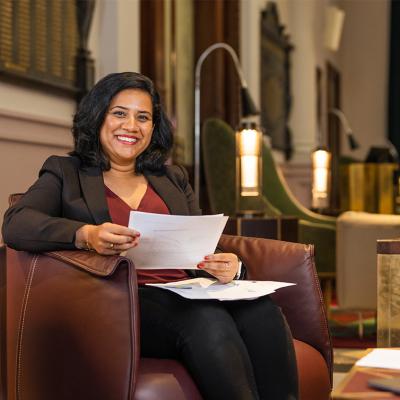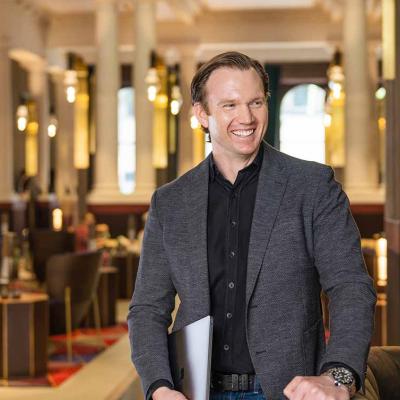With several years of management experience behind you and an eagerness to advance your skills, a Master of Business Administration (MBA) is the ideal tool to forge the career path you want. But if you haven’t completed previous tertiary study, you might be wondering: can I do an MBA without a degree?
The good news is there are multiple pathways into the UQ MBA. While some of our students are university veterans, many others went directly into professional work after high school.
UQ MBA requirements for admission
To enrol in the UQ MBA, you need 4 years of full-time work experience, with at least 2 of those years in a dedicated management role, and a bachelor’s degree.
For applicants without a bachelor’s degree, the Graduate Certificate in Business Administration is often the ideal MBA pathway program. This degree bridges the gap between practical and theoretical knowledge, giving you a solid entry point into your MBA.
If you’re eligible for the MBA program and find your circumstances change along the way, you can exit the program early with a graduate certificate if you meet the eligibility criteria.
Transition into the MBA without a degree with MBA pathways
If you’re ready to use your years of managerial experience to your advantage and gain all the benefits of the MBA, UQ’s Graduate Certificate in Business Administration is a valuable MBA pathway you can access. After successfully completing the graduate certificate, you can transition into the UQ MBA program if you meet all other eligibility criteria.
To start the graduate certificate program without a bachelor’s degree, you’ll need 7 years of full-time equivalent work experience with 3 of those years in a dedicated management role.
Graduates who bridged their experience with an MBA pathway
After 35 years working for the Queensland Government, Peter Noyes saw the Graduate Certificate in Business Administration as the perfect way to reintroduce himself to study and leverage his work experience to transition to the MBA program.
"I was a late starter to formal university-level education," he says.
"Before starting my MBA journey, I’d held management and executive positions for many years, which gave me a great deal of work experience to underpin my formal studies."
Similarly, Alison Smith had entered the workforce directly out of high school with a traditional cadetship and gained 26 years of experience working in journalism, the state government and corporate affairs.
"The program took me on a steep learning journey and quickly exposed me to new areas of study," Alison says.
"It taught me all the things I didn’t already know and filled in the gaps necessary to become a better leader."
Form valuable lifelong connections while learning
Peter and Alison found that using the graduate certificate as an MBA pathway created earlier opportunities to expand their network, as both graduate certificate and MBA students complete the same courses at the same time. By studying with the MBA cohort, graduate certificate students also have access to the same exclusive networking opportunities, events and lifelong access to a dedicated team of career experts.
"The people I met and relationships I formed early on were invaluable and have endured since the end of the MBA program," Peter says.
"I took away a lot from discussing what we’d learned together and working alongside them throughout the program."
Alison agrees that studying with MBA students and meeting graduates are highlights of the program.
"It was great to collaborate with other students and network with MBA alumni," she says.
Gain new skills to add value and achieve goals
By the time she transitioned from the graduate certificate into the MBA, Alison had landed a new position leading corporate affairs for the Star Entertainment Group in Queensland. Once she’d completed the MBA, the then-CEO promoted Alison to be the national head of corporate affairs.
"He recognised my determination in balancing a full-time job with part-time study and the versatile skillset the MBA gave me to lead key projects," she says.
"Within 5 years of graduating, I became the CEO of the Local Government Association of Queensland, the peak body for all 77 councils across the state."
Meanwhile, Peter was looking for practical opportunities to apply what he’d learned during the graduate certificate and MBA in his current workplace.
"Many of my MBA colleagues undertook the program to pursue career advancement," he says.
"For me, it wasn’t so much about a change in career, but rather, being able to use my new knowledge and expertise to improve the organisation I work for."
Are you ready to see where a formal qualification could take your career?
Register now to discuss your options with our friendly MBA admissions experts at a time that suits you.







